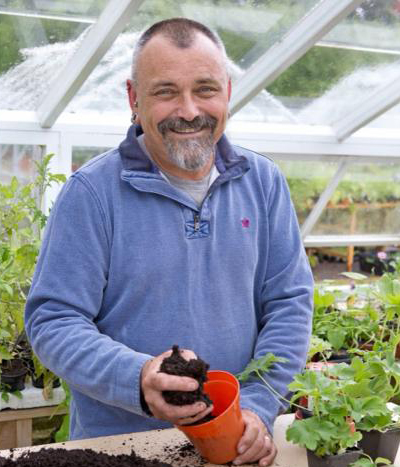Top Tips for Your Soil

This month we thought we would revisit the TOP TIPS from 2019's fascinating talk 'The Answer Lies in the Soil' at the nursery given by the Guest Speaker David Hurrion. David is a horticulturist with over 50 years experience, a prolific writer and the former Deputy Editor of BBC Gardeners World Magazine. His videos demonstrating how to carry out tasks in the garden such as pruning are very helpful and educational, full of tips and inspiration.
The Sales Team were lucky enough to sit in on the talk. Here are a few tips that we took away:
Your plants are only as healthy as the soil that they are growing in. Healthy soil provides plants with the nutrients they need access to, water and oxygen plus good drainage to prevent waterlogging or run-off.
Compost is a great habitat for many forms of wildlife, including earthworms who eat organic matter breaking it down into smaller components that bacteria and fungi can then devour, releasing nutrients for plants. Compost in the form of well rotted manure or leaf mould is far better for your garden than artificial fertiliser, which can run off in the rain. Put compost on your borders at least every other year, if not every year for the best results, especially for fruit and vegetables.
Understanding your soil is key to choosing plants that will thrive in your soil, working with it rather than against it. To know what type of soil you have, take soil tests in different parts of your garden. Roll a sample of the soil into a ball with a little water:-
If it feels gritty and the ball falls apart easily it is likely to be predominantly sandy and free draining meaning it will need watering more often. Use compost that contains manure as it will help with water retention. When water flows down through soil it washes away nutrients. Free draining soils are likely to need a mulch of organic matter in spring to feed the soil and possibly in autumn too to prevent erosion.
If the ball holds together and can be rolled into a sausage that is also shiny, your soil has a lot of clay particles in it and will retain moisture. Its drainage is likely to need improving. Apply a thick mulch of organic matter to the soil in autumn and let the worms do the work for you, creating channels for drainage and movement of gases by their burrowing motion.
If it feels silky or soapy it contains mostly silt particles and has good drainage plus good access to nutrients - lucky you!
Look at where plants have self seeded, as they will tell you a lot about what will grow in the different areas in your garden.
David is back on 16th March for another talk at the nursery, this time entitled 'Keeping Your Garden in Great Shape'. For further details and to book your place click here
